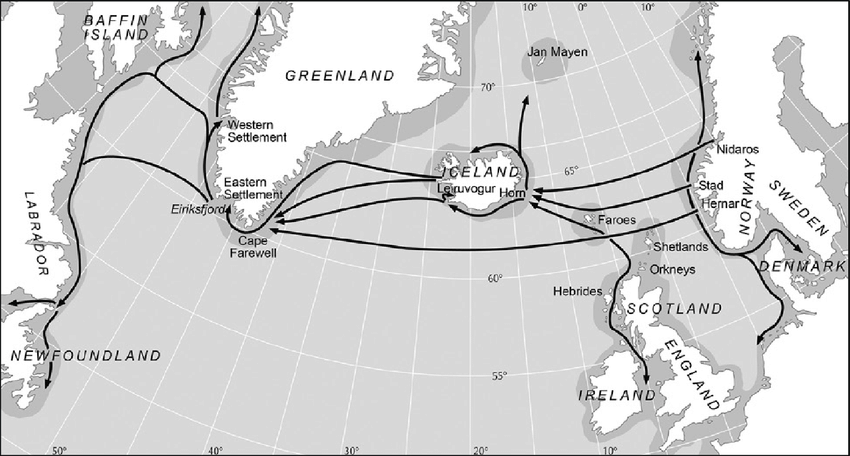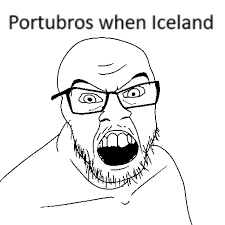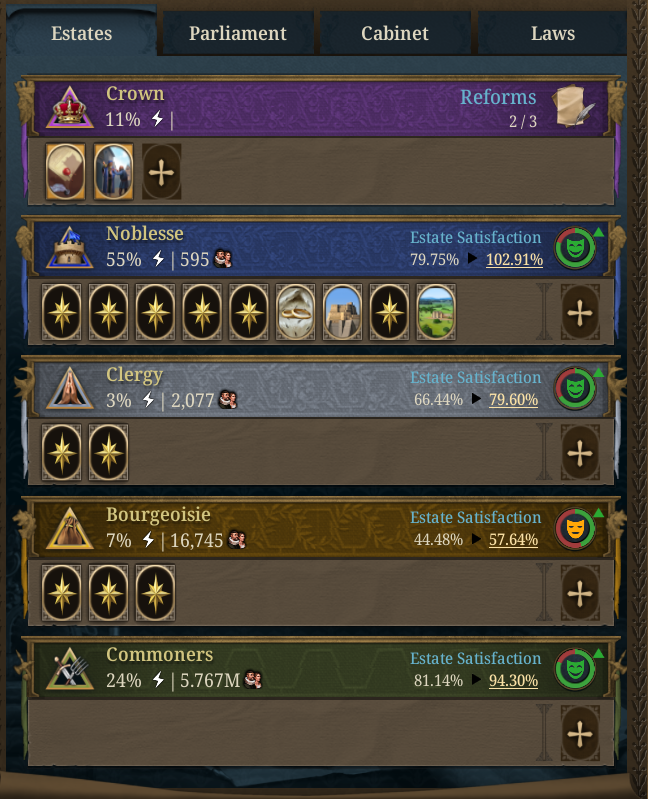Hello everyone and welcome to another Tinto Talks, the Happy Wednesday when we talk more about our upcoming top secret game with the codename Project Caesar.
This week we will go into details about the government reforms and look into some specific ones that you may use or not.
Representing everything from ancient traditions to progressive amendments, Government Reforms outline the shape of governance in a country. Each one is unique, but they often give powerful trade-offs or open up unique play styles.
At the start of the game, countries are only allowed 2 government reforms, but in every Age there is at least one advance that unlocks another slot for reforms. Some specific reforms also add another slot, so they are essentially “free” for that country. On average in the final Age of the game, a country may have 7 or 8 reforms.
Common Government Reforms that are available to everyone are likely to have an Age requirement, spreading out their availability over the game.
Some reforms are major reforms, and a country may not have more than one major reform at the same time.
There will be a diverse selection of reforms in each age, with about 5 common new ones added each age, and another 2 per government type. The unique ones are far more plentiful, and diverse, with over 150 currently in the game.
In the User Interface, the government reforms exist in the Crown’s part of the Estates Screen, as the Crown does not really have any estate privileges…
 France can have 3 reforms, but are the current ones actually beneficial?
France can have 3 reforms, but are the current ones actually beneficial?
Removing a Government Reform currently costs 20 stability, which is a bit cheap, but that may change. Some reforms can not be removed at will though, and are locked until specific circumstances allow them to be removed.
Adding a new reform does not have a cost, but it takes up to 2 years before the benefits are fully implemented.
Common Reforms
Here are some examples of early government reforms that many nations have access to from the start.
Religious Tolerance
For when your country is populated by people who practice different beliefs and confessions. Therefore, it would be prudent to govern in a tolerant manner with them, ensuring their support for the government.

It will make your country a bit more communal though..
Diplomatic Traditions
From time immemorial our people have favored the word above the sword, giving us the ability to forge lasting relationships with our allies and friends and a reputation as honest and loyal.

For certain types of countries, this is rather important..
Military Order
This is a major reform that catholic theocracies have access to. It is one of the types of reforms that truly defines a country.
The Military Orders were created in the Middle Ages as a militant body of the Catholic Church. Its members are both warriors and monks who take religious vows and are destined to defend and expand Christianity.

Military Sponsorships are vitally important to a Holy Order!
Unique Government Reforms
So let's take a look at some of the more unique government reforms that we have in the game right now.
Family Sagas
This is a unique reform that anyone with the primary culture of Icelandic can get, which both Iceland and Greenland starts with.
Our ancient sagas passed orally through the generations tell of adventurous expeditions to a distant and wild land over the western sea. Perhaps one day we may follow in the footsteps of our old compatriots.

If only they had the population to exploit it..
Three Departments
This is available to any country that has Chinese or Korean as their court language.
The Three Departments System originates from the ancient Chinese empires and is the primary administrative structure of the state. All departments focus on several aspects of the process of drafting, establishing and revisiting state policies.

If you want laws changed, this is the reform to have..
Magna Carta
This is a unique reform that England starts with, and is also possible for any country with the English primary culture, or if their overlord has this reform.
The 'Great Charter' is a constitutional law that distributes power away from the monarch and towards the barons. First signed in 1215, it is also one of the earliest documents to enshrine the idea of civil liberties, such as the right to a fair trial, and protection against illegal imprisonment.

It gives some power to the nobility, and shapes the country towards certain ideals.
Stay tuned, as next week we will look into all the different types of Parliaments, and how you interact with them...
This week we will go into details about the government reforms and look into some specific ones that you may use or not.
Representing everything from ancient traditions to progressive amendments, Government Reforms outline the shape of governance in a country. Each one is unique, but they often give powerful trade-offs or open up unique play styles.
At the start of the game, countries are only allowed 2 government reforms, but in every Age there is at least one advance that unlocks another slot for reforms. Some specific reforms also add another slot, so they are essentially “free” for that country. On average in the final Age of the game, a country may have 7 or 8 reforms.
Common Government Reforms that are available to everyone are likely to have an Age requirement, spreading out their availability over the game.
Some reforms are major reforms, and a country may not have more than one major reform at the same time.
There will be a diverse selection of reforms in each age, with about 5 common new ones added each age, and another 2 per government type. The unique ones are far more plentiful, and diverse, with over 150 currently in the game.
In the User Interface, the government reforms exist in the Crown’s part of the Estates Screen, as the Crown does not really have any estate privileges…

Removing a Government Reform currently costs 20 stability, which is a bit cheap, but that may change. Some reforms can not be removed at will though, and are locked until specific circumstances allow them to be removed.
Adding a new reform does not have a cost, but it takes up to 2 years before the benefits are fully implemented.
Common Reforms
Here are some examples of early government reforms that many nations have access to from the start.
Religious Tolerance
For when your country is populated by people who practice different beliefs and confessions. Therefore, it would be prudent to govern in a tolerant manner with them, ensuring their support for the government.

It will make your country a bit more communal though..
Diplomatic Traditions
From time immemorial our people have favored the word above the sword, giving us the ability to forge lasting relationships with our allies and friends and a reputation as honest and loyal.

For certain types of countries, this is rather important..
Military Order
This is a major reform that catholic theocracies have access to. It is one of the types of reforms that truly defines a country.
The Military Orders were created in the Middle Ages as a militant body of the Catholic Church. Its members are both warriors and monks who take religious vows and are destined to defend and expand Christianity.

Military Sponsorships are vitally important to a Holy Order!
Unique Government Reforms
So let's take a look at some of the more unique government reforms that we have in the game right now.
Family Sagas
This is a unique reform that anyone with the primary culture of Icelandic can get, which both Iceland and Greenland starts with.
Our ancient sagas passed orally through the generations tell of adventurous expeditions to a distant and wild land over the western sea. Perhaps one day we may follow in the footsteps of our old compatriots.

If only they had the population to exploit it..
Three Departments
This is available to any country that has Chinese or Korean as their court language.
The Three Departments System originates from the ancient Chinese empires and is the primary administrative structure of the state. All departments focus on several aspects of the process of drafting, establishing and revisiting state policies.

If you want laws changed, this is the reform to have..
Magna Carta
This is a unique reform that England starts with, and is also possible for any country with the English primary culture, or if their overlord has this reform.
The 'Great Charter' is a constitutional law that distributes power away from the monarch and towards the barons. First signed in 1215, it is also one of the earliest documents to enshrine the idea of civil liberties, such as the right to a fair trial, and protection against illegal imprisonment.

It gives some power to the nobility, and shapes the country towards certain ideals.
Stay tuned, as next week we will look into all the different types of Parliaments, and how you interact with them...





.png)
